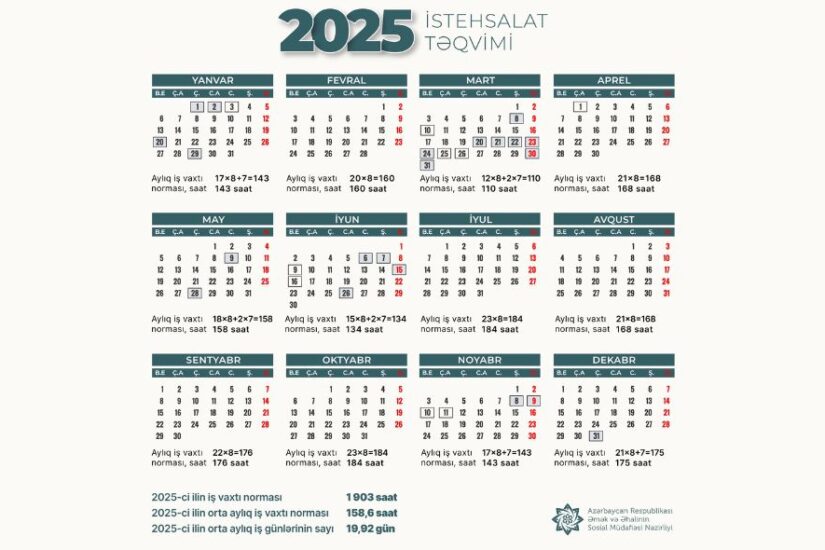One of the first documents encountered by anyone importing goods from abroad or exporting goods from the country is the customs declaration. This is not merely a formal obligation – it is a key mechanism that ensures economic security for the state and provides legal protection for both entrepreneurs and citizens.
According to the Customs Code of the Republic of Azerbaijan, the customs declaration serves as the legal basis for the customs clearance and control of goods. Under the rules in force as of 2025, this process can be carried out either in paper form or electronically (via the Smart Customs mobile application or the e-services portal).
In this article, you will learn:
- The essence and purpose of the customs declaration,
- How to complete it step by step,
- How the electronic declaration system works,
- The calculation of customs duties and taxes,
- The legal framework and responsibilities,
- And the real benefits for entrepreneurs.
What is a Customs Declaration?
A customs declaration is an official written or electronic document submitted to the customs authority when goods or vehicles are moved across the customs border. It contains complete and accurate information about the name, type, quantity, value, country of origin of the goods, and their customs regime.
According to Articles 146 and 150 of the Customs Code of the Republic of Azerbaijan, the customs declaration is the legal basis for customs control and clearance. Without this document, goods cannot be released into free circulation.
Main purposes of the customs declaration:
- Ensuring transparency – providing the state with full information on import and export operations,
- Calculation of duties and taxes – correctly determining customs payments based on the type and value of goods,
- Economic security – preventing smuggling and illegal trade,
- Legal protection – officially registering goods, which is essential for audits and international cooperation.
How to Complete a Customs Declaration (Step by Step)
Properly completing the customs declaration is highly important for both entrepreneurs and citizens. Errors in the information provided can result in additional inspections, detention of goods, and even administrative liability.
According to Articles 150 and 157 of the Customs Code, the information stated in the declaration must be complete and accurate. Otherwise, the release of goods is not possible.
Step-by-step instructions:
- Choosing the correct form
- The relevant form is selected depending on whether the operation is import, export, or transit.
- For electronic submission, Smart Customs or the e-services portal of the State Customs Committee is used.
- Entering information about the goods
- The name, type, HS code, country of origin, quantity, and unit of measurement must be indicated.
- Most errors occur when HS codes are entered incorrectly.
- Indicating the value
- The customs value of the goods is stated based on the invoice and contract.
- The currency and value must be correct, as duties and VAT are calculated accordingly.
- Attaching additional documents
- Invoice, contract, transport document (CMR, bill of lading, etc.), certificates.
- In electronic submission, documents are uploaded in PDF format.
- Choosing the customs regime
- Release into free circulation, transit, temporary import, or export regime.
- This choice is legally significant.
- Confirmation and signature
- In paper form: signed by the entrepreneur or declarant.
- In electronic form: confirmed using ASAN İmza or e-signature.
- Submission to the customs authority and verification
- The customs officer reviews the document.
- Additional documents or explanations may be requested if necessary.
- Making payments
- VAT, excise duties, and customs duties are calculated based on the declaration.
- Payments are made electronically or through the bank.
SGF GROUP Recommendations:
- If completing the declaration for the first time, it is advisable to work with a customs broker or declarant.
- Preparing documents in advance saves time and reduces additional costs.
- Particular attention should be paid to the value of goods and HS codes – most disputes arise in these areas.
Electronic Customs Declaration: Smart Customs Explained
The development of technology has simplified customs procedures. Previously, completing documents could take hours on paper, but now it can be done in just a few minutes electronically – through the Smart Customs mobile application and the State Customs Committee’s e-services portal (customs.gov.az, my.gov.az).
What is Smart Customs?
Smart Customs is an official mobile application that enables customs operations to be carried out electronically.
Through this system, individuals and entrepreneurs can:
- Declare their goods,
- Pay customs duties online,
- Submit documents electronically,
- Track the status of their declaration in real time.
Usage process (step by step):
- Log in via ASAN Login.
- Enter information about the goods (name, type, value, HS code).
- Upload additional documents (invoice, contract, transport document).
- Pay VAT and customs duties electronically.
- Monitor the status of goods through the application.
Advantages of the electronic customs declaration:
- Time saving – no need for paper-based procedures,
- Transparency – all operations are visible in the system,
- 24/7 accessibility – can be used at any time,
- Simplified operations – especially for goods intended for personal use.
Customs Duties and Taxes: What Rates Apply?
One of the key functions of the customs declaration is to calculate duties, fees, and taxes on goods. According to Azerbaijani legislation, goods imported into or exported from the country are subject to specific customs payments.
Under the Customs Code and the Tax Code of the Republic of Azerbaijan, the main customs payments are:
- Customs duties
- Ad valorem duty – calculated as a percentage of the customs value of goods,
- Specific duty – charged as a fixed amount per unit or volume of goods,
- Combined duty – includes elements of both ad valorem and specific duties.
- Value-Added Tax (VAT)
- The current VAT rate in Azerbaijan is 18%.
- VAT is calculated based on the customs value of goods, customs duty, and excise tax (if applicable).
- Excise taxes Certain goods are additionally subject to excise tax, including:
- Alcoholic beverages,
- Tobacco products,
- Petroleum products,
- Luxury goods (e.g., certain cars).
- Other payments
- Customs fees – charged for the processing and clearance of documents,
- Export duties – may apply to certain strategic goods.
Example of simplified customs payment calculation:
For clothing imported with a customs value of $1,000:
- Customs duty: 15% = $150
- VAT: (Goods value $1,000 + Customs duty $150) × 18% = $207
- Total payment: $150 + $207 = $357
Thus, an entrepreneur importing goods worth $1,000 must pay approximately $357 in customs duties and taxes.
MAIN CUSTOMS PAYMENTS
| Type of Payment | Base Rate | Note |
|---|---|---|
| Customs Duty | 0% – 15% (depending on the type of goods) | Varies according to the HS code of goods |
| VAT (Value-Added Tax) | 18% | Calculated based on the customs value of the goods + customs duty |
| Excise Tax | Varies by goods | Applies to alcoholic beverages, tobacco, fuel, etc. |
| Customs Fees | Fixed amounts | Official service charges |
Who Qualifies for a Simplified Customs Declaration?
According to Article 155 of the Customs Code, certain goods may be declared under a simplified procedure. This primarily applies to goods for personal use, postal parcels, and courier deliveries.
Based on Decision No. 305 of the Cabinet of Ministers, postal and online purchases worth up to USD 300 per month (excluding certain items such as alcoholic beverages, tobacco, mobile phones, and some medicines) are exempt from customs duties.
USD 300 threshold
- ≤ USD 300 (equal to or less than 300)
- If personal-use goods fall within this limit → a simplified declaration is submitted, but no customs payment is required.
- Example: If you order clothing worth USD 250, you complete a simplified declaration in Smart Customs, and no payment is charged.
- > USD 300
- Goods must be cleared through a full customs declaration, and duties + VAT must be paid.
- Example: If you purchase a phone worth USD 450, a full customs declaration is required and payments are calculated accordingly.
Note: This exemption applies only to goods for personal use. If the goods are imported for commercial purposes, a full customs declaration must be submitted regardless of their value.
Advantages of Simplified Declaration
- Fewer documentation requirements,
- Simplified payment mechanism (often zero duty),
- Ability to complete the process online via Smart Customs.
Customs Control: Role and Importance of the Declaration
The customs declaration is not just a formal document – it is one of the most important tools of customs control. By law, all goods entering or leaving the customs territory are subject to customs control, and the information in the declaration serves as the primary legal source for this process.
What is customs control?
Customs control is the inspection process carried out by customs authorities when goods are imported or exported. It includes:
- Checking compliance of goods with documentation,
- Verifying customs value,
- Preventing illegal goods,
- Ensuring health and safety standards.
Role of the declaration:
- Risk reduction – when information is complete, inspections are faster,
- Transparency – the state can monitor import-export operations in real time,
- Guarantee of legality – the origin and value of goods are officially confirmed.
Stages of customs inspection:
- Document verification – examination of the submitted declaration and additional documents,
- Physical inspection – checking the actual quantity and quality of goods, if required,
- Laboratory testing – certain goods (e.g., medicines and food products) may undergo specific tests,
- Confirmation of results – once compliance is confirmed, the goods are released for circulation.
Deadlines for Customs Declarations
Timely submission of customs declarations is a legal obligation. If the document is delayed, the entrepreneur may be held administratively liable.
According to Article 149 of the Customs Code of the Republic of Azerbaijan, a customs declaration must be submitted within 15 days from the date goods enter the customs territory.
Additionally:
- For internal transit → must be submitted to the destination customs office,
- For temporary import and export → until the movement of goods is completed,
- For short import declarations → must be submitted at the border or before crossing the border.
Consequences of delays:
- Customs authorities may detain goods for additional checks,
- Administrative fines may be imposed; goods may be held, and a fixed penalty applied,
- Release of goods from customs may be delayed, increasing logistics costs.
Amendments and Corrections to the Customs Declaration
After submission, entrepreneurs or declarants may sometimes need to correct information in the declaration. This may occur due to clarification of goods’ value, incomplete documentation, or technical errors.
According to the Customs Code of the Republic of Azerbaijan:
- The declaration may be amended before customs proceedings begin,
- Amendments are possible only with the consent of the customs authority,
- Submission of additional information and documents is legally accepted,
- Main condition: amendments must not change the customs regime of goods (e.g., from import to export, or from transit to another regime).
Main reasons for amendments:
- Incorrect HS code – if the tariff classification of goods is entered wrongly,
- Adjustments to financial value – if an updated invoice price is provided,
- Submission of additional documents – e.g., certificate or permit not available earlier,
- Technical errors – mistakes in numbers, dates, or addresses in written or electronic form.
Withdrawal of a Customs Declaration
If an entrepreneur decides not to import goods and customs proceedings have not yet started, the declaration may be fully withdrawn. For this, a written request must be submitted to the customs authority.
Common Mistakes in Completing Customs Declarations
Incorrectly completing a customs declaration can cause both time losses and extra costs for entrepreneurs. Legislation requires that the information provided be accurate and complete. Otherwise, incorrect or incomplete data may lead to administrative liability and delays in clearance.
Most common mistakes:
- Incorrect HS codes – wrong tariff codes may lead to additional duties and taxes,
- Misrepresentation of financial value – under-declaration is a violation, over-declaration causes unnecessary payments,
- Incorrect country of origin – impacts import duties and trade agreements,
- Incomplete submission of documents – missing invoices, certificates, or permits,
- Wrong choice of customs regime – e.g., declaring import instead of transit.
Consequences of mistakes:
- Delays in customs clearance,
- Storage of goods in customs warehouses,
- Additional inspections and laboratory tests,
- Administrative fines and extra costs.
Liability and Penalties for Customs Declarations
A customs declaration is not just a piece of paper – it is an official document that creates legal obligations. Incorrect completion may cause both time loss and financial risks.
Main risks include:
- Late submission: If not filed on time, clearance is delayed, and fines may apply,
- Incorrect information: Wrong data on value, quantity, or origin is considered a violation. If deliberate, liability is more severe,
- Missing documents: If contracts, invoices, or other papers are not provided, goods are detained and extra charges applied,
- Violation of customs regime: For example, if goods imported under transit are sold domestically, this is considered a serious breach.
SGF GROUP Recommendations:
- Deliberately providing false information in the declaration is the greatest risk for entrepreneurs,
- If a delay occurs, it is best to officially notify customs authorities,
- The safest option is to work with an experienced customs declarant or broker.
Benefits of Customs Declarations for Entrepreneurs
The customs declaration is not only a state control mechanism – it also provides many legal and practical benefits for entrepreneurs. A properly and timely submitted declaration ensures transparency, stability, and reliability in business operations.
- Legal assurance
- Confirms that goods are imported/exported legally,
- Serves as legal evidence during audits and tax inspections,
- Demonstrates “official operation” to foreign partners.
- Logistics advantages
- Properly declared goods pass customs more quickly,
- Risks of additional checks and detention are reduced,
- Prevents delays in the supply chain.
- Financial stability
- Correctly declared goods protect entrepreneurs from fines and sanctions,
- VAT, excise, and duties are calculated precisely,
- Contributes to stable budget planning.
- Trust in international partnerships
- Proves transparency in international trade,
- Provides legal assurance to foreign partners,
- Strengthens credibility for new contracts and cooperation.
- Investment attractiveness
- Transparent customs operations enhance financial reporting,
- Makes it easier to obtain credit or attract foreign investment.
E-Services Portal: Where to Apply?
Today, there is no need to physically visit customs offices to submit a customs declaration. The State Customs Committee and other government agencies have enabled the entire process to be carried out online via electronic services.
Main official portals:
- customs.gov.az – official website of the State Customs Committee:
- Electronic customs declaration service,
- Short import/export declaration forms,
- Electronic payment system.
- my.gov.az – e-government portal:
- Offers various clearance services under the “Customs Services” section,
- Login available via ASAN Login.
- Smart Customs mobile application:
- Designed for postal and courier deliveries of individuals,
- Enables declaration of goods, online payments, and real-time tracking.
Advantages of e-services:
- Time saving – documents completed and submitted online instantly,
- Accessibility – available from anywhere in the country,
- Transparency – all operations visible in the system,
- Security – confirmation with ASAN İmza and e-signature enhances legal validity.
SGF GROUP Recommendation:
As an entrepreneur or frequent online shopper, get used to working via customs.gov.az and my.gov.az. E-services are the most convenient choice in terms of both efficiency and legal security.
Frequently Asked Questions (FAQ)
- Can I fill out the customs declaration myself?
Yes. Both individuals and business owners can complete the declaration themselves. However, for first-time filers, it is recommended to work with a customs broker or a declaration agent, as the most common errors occur when HS codes are entered incorrectly.
- Which goods are exempt from customs declaration?
According to legislation, some personal items may be brought in without customs declaration, for example:
- Postal and courier shipments for personal use up to USD 300,
- Personal clothing and hygiene items,
- Limited quantities of medicines for personal use,
- Goods carried for personal use during travel.
However, goods intended for commercial purposes must always be declared.
- How can a customs declaration be canceled?
According to Articles 153–154 of the Customs Code:
- If the goods have not been brought in and customs clearance has not started, the owner can withdraw the declaration by submitting a written request.
- Once the clearance process has begun, cancellation is only possible under certain circumstances.
- What are the advantages of electronic customs declaration?
- Time-saving,
- 24/7 accessibility,
- Electronic payment options,
- Full legal validity with ASAN Sign and e-signature.
For online shoppers in particular, the Smart Customs application is more convenient.
- What are the most common mistakes when filling out a customs declaration?
- Incorrect HS codes,
- Misstating the value of goods,
- Incorrectly indicating the country of origin,
- Incomplete submission of supporting documents.
These errors may lead to additional costs and delays at customs.
- How are customs duties calculated?
Duties are calculated based on the customs value of goods, HS code, and applicable tariffs:
- VAT – 18%,
- Excise – varies depending on the type of goods,
- Customs fees – fixed amounts.
For example, for clothing worth USD 1,000, the total customs charges may be approximately USD 350–400.
- What happens if I do not submit a customs declaration?
According to Article 149.3 of the Customs Code, a declaration must be submitted within 15 days for imported goods.
Failure to do so may result in:
- Goods being held at customs,
- Administrative fines for the owner (Articles 485–486),
- In repeated or severe cases, criminal liability may also arise.
Conclusion
The customs declaration is not just a formal document – it is an essential guarantee for the state, entrepreneurs, and citizens alike.
- For the State – ensures transparency in trade, protects budget revenues, and prevents smuggling.
- For Entrepreneurs – provides legal protection, prevents additional costs, and strengthens trust with international partners.
- For Citizens – allows the legal and convenient import of personal goods into the country.
Legislation requires that customs declarations be submitted accurately and on time. For imports, the declaration must usually be filed within 15 days after goods enter the customs territory, while for exports, it must be submitted at the time of shipment. Incomplete or inaccurate information may lead to administrative liability, and in severe cases, even criminal responsibility.
Today, thanks to electronic services (Smart Customs mobile application, my.gov.az, customs.gov.az), the process of completing customs declarations has become more convenient, faster, and more transparent.
Professional Support for Customs Declarations
The correct and timely preparation of a customs declaration ensures legal stability, financial transparency, and business credibility for entrepreneurs. Even the smallest mistake in this process can result in extra costs, delays, and administrative liability.
At SGF GROUP, we provide our partners with:
- Preparation of declarations fully compliant with legislation,
- Comprehensive legal support in electronic customs and Smart Customs platforms,
- Minimization of risks in import-export operations,
- Assistance with accurate calculation of duties and taxes,
- Legal assurance and reliability in international trade.
Our goal is not only to prepare documents, but also to ensure the sustainability and credibility of our partners’ businesses.










